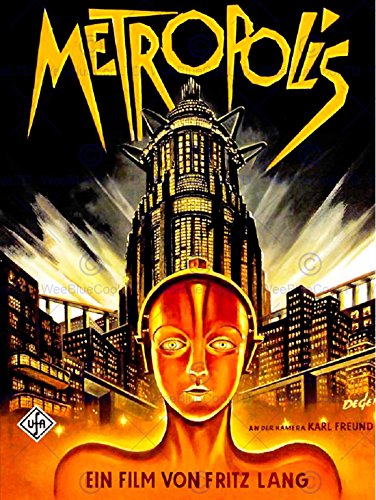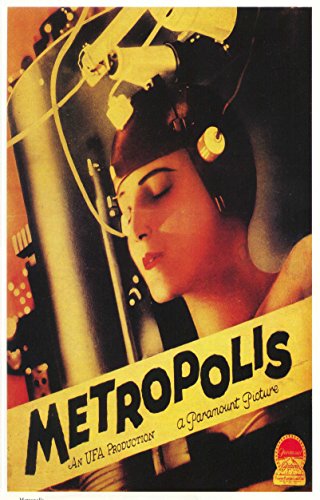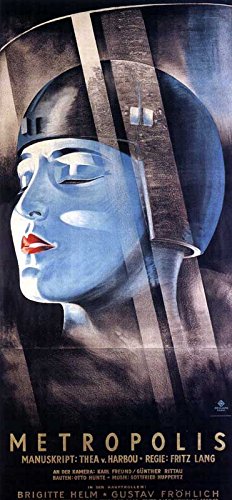Directed by Fritz Lang, Metropolis is a towering achievement of German Expressionist cinema, widely regarded as the first feature-length science fiction film. Released during the Weimar Republic, it presents a visually stunning and politically charged vision of a futuristic city divided between oppressive industrialists and exploited workers, with a message that still resonates:
“The mediator between the head and the hands must be the heart.”
Plot Summary
In the sprawling city of Metropolis, society is split into two classes: the elite planners who live in luxury above ground, and the laborers who toil below. Freder Fredersen, son of the city’s master Joh Fredersen, discovers the brutal conditions of the workers and joins forces with Maria, a spiritual leader preaching peace and unity. Meanwhile, mad scientist Rotwang creates a robotic double of Maria to incite chaos. The film builds toward revolution, reconciliation, and the iconic destruction of the Heart Machine.
Cast Highlights
- Brigitte Helm as Maria / the Maschinenmensch (robot Maria)
- Gustav Fröhlich as Freder Fredersen
- Alfred Abel as Joh Fredersen
- Rudolf Klein-Rogge as Rotwang
Behind-the-Scenes Trivia
- Lang wanted 4,000 bald extras for the Tower of Babel sequence but settled for 1,000, using optical tricks to multiply them
- The film’s special effects—including the robot transformation and cityscapes—used pioneering techniques like the Schüfftan Process, involving mirrors and matte art
- Adolf Hitler and Joseph Goebbels were reportedly fans of the film; Goebbels even offered Lang a position in Nazi cinema. Lang fled Germany that night
- The film was heavily edited after its premiere, losing nearly a third of its footage. A restored version was released in 2010 after missing scenes were found in Argentina
- The robot Maria inspired designs in Star Wars, Blade Runner, and The Terminator
Legacy and Impact
- Selected for preservation in the U.S. National Film Registry
- Ranked among the greatest films of all time, influencing generations of filmmakers
- Its themes of class struggle, technology, and human empathy remain timeless
- The Maschinenmensch is one of the most iconic images in sci-fi history



Comments are closed, but trackbacks and pingbacks are open.